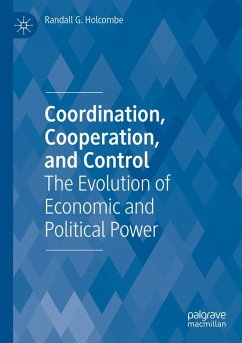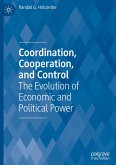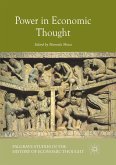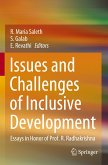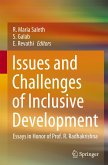There are two ways people coordinate their actions: through cooperation, exercised by economic power, and through control, exercised by political power. When economic and political power are held by the same people, the result is stagnation; when those who hold economic power are not the same people who hold political power, the result is progress. This book presents the ways in which economic power and political power can be separated, and how they can remain so, by analyzing the nature of power and the differences between economic and political power. The book then discusses the history of economic and political power, including hunter-gatherer societies, agrarian societies, and modern commercial and industrial societies. This background lends insight into why political and economic power were typically held by the same people, and why recently those without political power have been able to acquire economic power. Incentives play a key role in understanding how those two typesof power can become separated, and why there is always a tendency for them to recombine. But ideas also play a crucial role, including the influence of the Enlightenment, on the progress that has occurred in the last several hundred years.
"Holcombe's book offers a thorough treatment of the concept of power, and it is an important resource for scholars of political economy and public choice theory. Moreover, the material is presented in a way that is accessible to those that do not have strong background in the social sciences. The book can also be a valuable reference for graduate and undergraduate courses ... ." (Vaios Koliofotis, Erasmus Journal for Philosophy and Economics, Vol. 15 (1), 2022)
"This is a terrifc book. ... Holcombe has been a leader in attempting that redirection back toward foundations, and this book advances that program still further." (Michael Munger, Public Choice, Vol. 188, 2021)
"This is a terrifc book. ... Holcombe has been a leader in attempting that redirection back toward foundations, and this book advances that program still further." (Michael Munger, Public Choice, Vol. 188, 2021)

